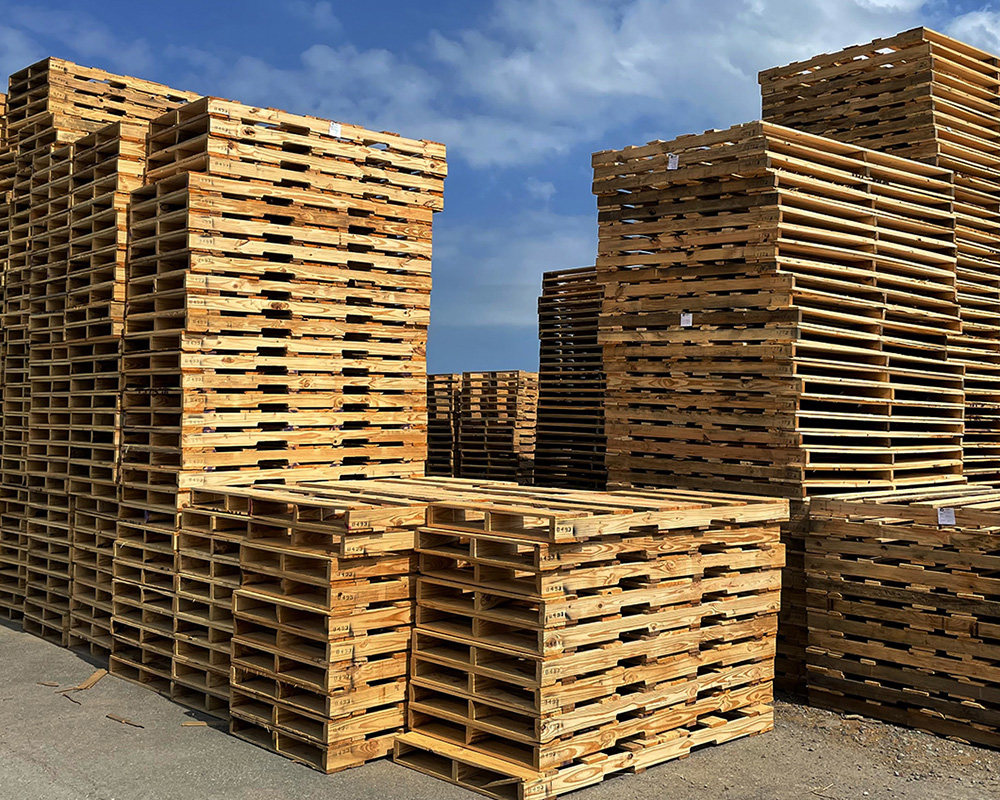Within the current quick-moving logistics sector, warehouses serve a vital role in the logistics chain, acting as the cornerstone of operations for businesses across various industries. To enhance efficiency and boost productivity, companies are progressively turning to personalized solutions designed for their particular needs. Included in this are wooden pallets, which have emerged as an crucial component that not just supports safe and secure storage and transportation but also meets the specific requirements of different operations.
Wooden pallets are favored for their toughness, durability, and versatility, which are a common item in warehouses worldwide. They can be designed and produced to fit a wide range of products, ensuring that businesses can handle their inventory with ease and confidence. By incorporating custom wooden pallets into their operations, warehouses can considerably upgrade their handling processes, reduce damage during transit, and in the end bolster their total performance.
The Role of Lumber Pallets in Storage Facility Efficiency
Lumber pallets play a crucial role in enhancing logistics operations by providing a dependable and sturdy platform for transporting and storing goods. Their robustness allows them to withstand substantial loads, making them an perfect choice for facilities that handle multiple materials. Additionally, lumber pallets are cost-effective, ensuring that facilities can manage their budgets while maintaining optimized operations.
One of the major advantages of wooden pallets is their flexibility to different goods and spaces. They can easily be modified in size and design to fit particular facility needs, accommodating individual product dimensions and storage requirements. This versatility not only improves the organization of inventory but also optimizes available space, allowing for optimal utilization of the logistics area.
Additionally, lumber pallets support streamlined handling practices. Their easy-to-handle nature makes them easy to move without machinery or with equipment, reducing the time and effort required during loading and unloading processes. This effectiveness contributes to quicker turnaround times, ultimately increasing the overall productivity of logistics operations. Enhancing efficiency through the use of timber pallets can lead to significant improvements in both workflow and customer contentment.

Tailoring Wooden Skids for Specific Needs
Bespoke wooden skids offer the flexibility to satisfy diverse operational requirements within their warehouse. Businesses have the ability to adapt its specifications, load limits, and styles of skids so as to improve performance and guarantee congruence to their storage infrastructure. These modification permits storage facilities for maximize area efficiency while storing diverse products, including large industrial parts and fragile products. With designing pallets which fit specific requirements, organizations can boost the process and efficiency.
Additionally major benefit of personalized wooden pallets lies in the opportunity for incorporate specific characteristics that meet specific transport needs. Whether adding is inserting reinforced edges to provide increased sturdiness while integrating unique surface applications for preventing slippage, such enhancements may safeguard goods in transit and storage. In addition, bespoke skids may be built including promotional features, providing an further promotional path while providing usefulness. This strategy permits warehouses to be distinct while confirming the products are securely transported.
In conclusion, putting resources into customized wooden pallets can result in financial savings through a long run. With building skids that precisely match the specific goods they transport, businesses minimize the risk for destruction, thereby lowering expenses due to goods damage as well as breakage. Moreover, appropriately dimensioned skids can improve packaging effectiveness and minimize shipping costs, because these might fit more items within each shipment. As companies storage facilities strive to enhance their processes, the benefits of customized wooden pallets grows more and more evident in enhancing both functional along with monetary results.
Sustainability Techniques in Pallet Management
Eco-friendly practices in pallet management are vital for reducing waste and encouraging environmental responsibility in warehouse operations. Timber pallets are often reusable and can be reused numerous times, prolonging their lifecycle and lessening the need for additional raw materials. By establishing pallets in tulsa for repairing and refurbishing pallets, warehouses can significantly reduce the volume of discarded pallets, which enhances a more sustainable logistics operation.
Another important aspect of sustainability in pallet management is the use of responsibly sourced wood. Many companies are now prioritizing suppliers that practice sustainable forestry, guaranteeing that the wood used for pallets comes from renewable resources. This not only supports to conserve forests but also fits the growing consumer demand for environmentally friendly products. Utilizing such practices fosters a strong brand image and can draw in customers who value sustainability.
Moreover, incorporating technology into pallet management can optimize operations and minimize environmental impact. For example, monitoring pallet usage and implementing an efficient return system can lessen the number of pallets that go to waste. Improvements like pallet pooling services enable companies to share resources, resulting in cost savings and lower carbon footprints. By accepting these modern approaches, warehouses can improve their operational efficiency while also committing to sustainable practices in pallet management.
